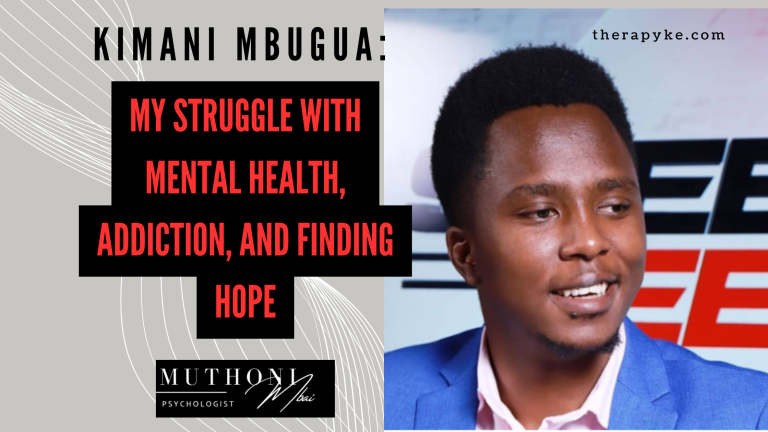
Why is Mental Health Not Taken Seriously?

In recent years, there’s been a surge in conversations around mental health, and while awareness is growing, mental health still often doesn’t receive the serious attention it deserves. Many people still believe that mental health challenges should be dealt with privately or can be “overcome” with enough determination, but this thinking can have serious consequences. Unlike physical health, which most people openly prioritize, mental well-being is frequently ignored, downplayed, or misunderstood.
Having worked in a health facility with all the departments, mental health just being one of them, I could tell how much physical health was prioritized as compared to mental health. In the case where a medical doctor referred a patient to a mental health professional say in a later date, you could see the patient still insisting to first complete the treatment with the medical doctor and then will seek mental health services as an addition. We could not go for a day without hearing this statement; ‘I decided to first be seeing the doctor, then when I get better I will see a mental health professional’, probably from a patient whose main issue is mental health. So, why is mental health not taken seriously? In this article, we’ll dive into why mental health often doesn’t receive the respect it warrants, why addressing this issue matters, and how subtle shifts in perception can lead to healthier lives.
Remember if you are seeking support, resources like therapyke.com and our Facebook page provide valuable information and access to therapy services, helping individuals take the first step in their mental health journey.
Why is Mental Health So Ignored?
Mental health is often sidelined for several reasons, especially in today’s busy, fast-paced world. People may acknowledge that they feel anxious, stressed, or low, but instead of seeking help, they often dismiss these feelings as temporary or try to “push through.” It’s common for people to feel that mental health concerns aren’t “serious enough” to require attention, thinking that everyone has stress and struggles, so they should just tough it out. But mental health issues are just as significant as physical health concerns, and addressing them promptly can make a tremendous difference in a person’s overall quality of life.
Patients with mild cases of depression or anxiety can often be treated with therapy alone, without the need for medication. However, many individuals wait until their mental health issues become severe and disrupt their daily lives before seeking treatment. Addressing these issues early can make treatment both more effective and less costly.
Ignoring mental health can create a vicious cycle. People who avoid addressing mental challenges may find these issues building up until they affect all parts of their lives, from relationships to work. Therapyke.com and similar resources provide accessible support, allowing people to address challenges early and build resilience over time.
Why Does Mental Health Not Get the Attention It Deserves?
A key reason mental health doesn’t receive the attention it deserves is that mental health struggles are often invisible. With physical health, symptoms are more visible—a broken leg requires a cast, a fever often means bed rest—but mental health issues don’t always show outward signs. This invisibility can lead people to underestimate the impact or assume that mental health isn’t as pressing or “real” as physical health.
Another reason mental health doesn’t receive enough attention is that society often views therapy or counseling as a last resort. There’s a common belief that seeking therapy means something is “wrong” with you or that you can’t manage on your own. But just as we go to the doctor for preventive health check-ups, therapy should also be seen as a proactive approach to well-being. Some platforms such as therapyke.com, for example, aims to make therapy accessible and normalize it as part of a healthy lifestyle, so people don’t feel they need to wait until a crisis to reach out.
Adding to this, mental health is often sidelined due to lack of education and awareness. Many people may not understand what mental health symptoms look like or assume that only severe mental illnesses require help. They may not realize that early support can prevent mental health issues from worsening, helping people develop skills to manage life’s stressors more effectively.
Recently, I had a conversation with a friend about psychosis symptoms. In our community, if someone showed signs of psychosis, it was simply assumed that they “had psychosis” and that nothing could be done for them. It was seen as just a part of who they were. No one seemed to think it was something that required medical attention. Growing up, we knew that if someone had these symptoms, there was no help available.
To some people, this is still the case!
Should Mental Health Be Taken Seriously?
Absolutely! Mental health is just as important as physical health, and neglecting it can lead to complications that ripple across various areas of life. Studies have shown that untreated mental health conditions can manifest as physical symptoms, from sleep disturbances and fatigue to digestive issues and headaches. Mental health concerns can even impact immune function, heart health, and the body’s overall resilience.
People often consider mental health a “personal” issue rather than a health issue, but this mindset can prevent them from seeking the support they need. Reach out to our Contact Page, a place where you can take that first step to better mental health and find professional guidance on their journey to wellness.
Why is Mental Illness So Stigmatized?
Despite growing awareness, there’s still a strong stigma around mental illness that discourages people from seeking the help they need. Misconceptions persist that mental illness is a sign of weakness, or that it’s something people can “snap out of.” People struggling with depression, anxiety, or other mental health conditions may fear judgment, misunderstanding, or discrimination, so they keep their struggles private.
Stigma around mental illness often stems from lack of understanding and the fear of being seen as “different.” Mental health challenges can affect anyone, regardless of background, but the fear of judgment keeps many people from reaching out for support. However, some platforms work to reduce this stigma by educating people about mental health, creating safe spaces where individuals can find the help they need without fear of judgment.
Stigma also affects how people perceive mental health resources like therapy and counseling. Some view seeking help as a sign of failure rather than a proactive, healthy step. Normalizing therapy as a part of everyday well-being can help people see it as a tool for self-care and growth, not just a crisis response. Changing this perception is essential to making therapy more accessible and accepted in all communities.
It’s Time to Take Mental Health Seriously
Taking mental health seriously is crucial for a balanced, fulfilling life. Just as we prioritize physical health, it’s important to care for our mental and emotional well-being. Addressing mental health early, helps people navigate challenges, build resilience, and prevent issues from escalating.
By considering therapy as a preventive, empowering choice, individuals can gain tools to better handle life’s stresses and transitions. The journey to better mental health may feel daunting, but seeking support is an investment in yourself that can lead to a healthier, more balanced life.
Make mental health a priority today. Be INTENTIONAL about it! You don’t have to face these challenges alone—support is just a click away.



